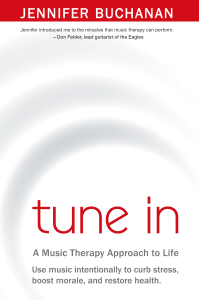Our connection to music is intensely personal. Over the past several years the role of music preferences has strongly been linked to three important psychological functions. When we respond positively to the music we are listening to we are more likely to improve our performance on certain tasks, our imagination is peaked, and our emotional state is altered.
Your preferences are your greatest triggers to snap you into the mood you want to be in but first we have to identify our preferences. In order to do that let’s break down our preferences into three components: style preferences, tempo preferences and timbre preferences.
Style preferences are often one of the easiest markers of music preferences. This is the kind of music we like. From classical to country, there are definite styles that we gravitate towards. It is fun as well as important to recognize what your style preference are, but always leave yourself open to surprises. The activity forms here will help you begin to address the styles you most gravitate towards.
Your tempo preferences vary more often each day. The tempo of a song we like in the morning is often different than the speed of songs we like in the afternoon or just before we go to bed. When selecting a song for a party we often think of tempo first and select what we perceive is upbeat or relaxing depending the mood we want to evoke.
Finally there is your timbre preferences. Every instrument or voice carries with it its’ unique timbre. All timbres attract or repel the person who hears it.
 Once you have addressed your music preferences, perhaps even documenting them you may begin to see patterns to your day, week, month or experiences.
Once you have addressed your music preferences, perhaps even documenting them you may begin to see patterns to your day, week, month or experiences.
Use these preferences to then highlight your key anchor songs. An anchor song becomes so ingrained that it anchors an emotional state immediately upon hearing it. There are a number of ways you can incorporate theme songs into your daily life.
Choose a song (or an entire playlist) to trigger the events in your life you want to affect—your favourite song to wake up to, what you go to work to, and the one song that reminds you of the one you love.
Of course the above exercises will need to be repeated many times, and in some cases frequently as we are constantly going through new experiences that trigger new music and old music memories. What affects us today may not affect us tomorrow. That’s the beautiful part of being a human being. You just need to help yourself become aware of what does affect you so that you can use that knowledge for the better—to take you to where you want to go.
As I spent time honing the process that I have just summed up above, I hope my goal has been realized: to create a usable guide so that anyone can benefit from the amazing effects music can create in your lives.
To use music effectively does take a commitment to be more mindful of how music affects you in various situations. It takes perseverance to discover the right music for the right situation. Above all, it takes a sense of adventure. Music can help you tap into your most creative self. It’s power is almost incomprehensible because it is so simple a solution to many of life’s difficulties.
So as you tune in to your music, may you find the peace, the joy, the laughter, and even sometimes the tears, that I have found with my music.
 More information and activities can be found in Tune In: A Music Therapy Approach to Life
More information and activities can be found in Tune In: A Music Therapy Approach to Life

